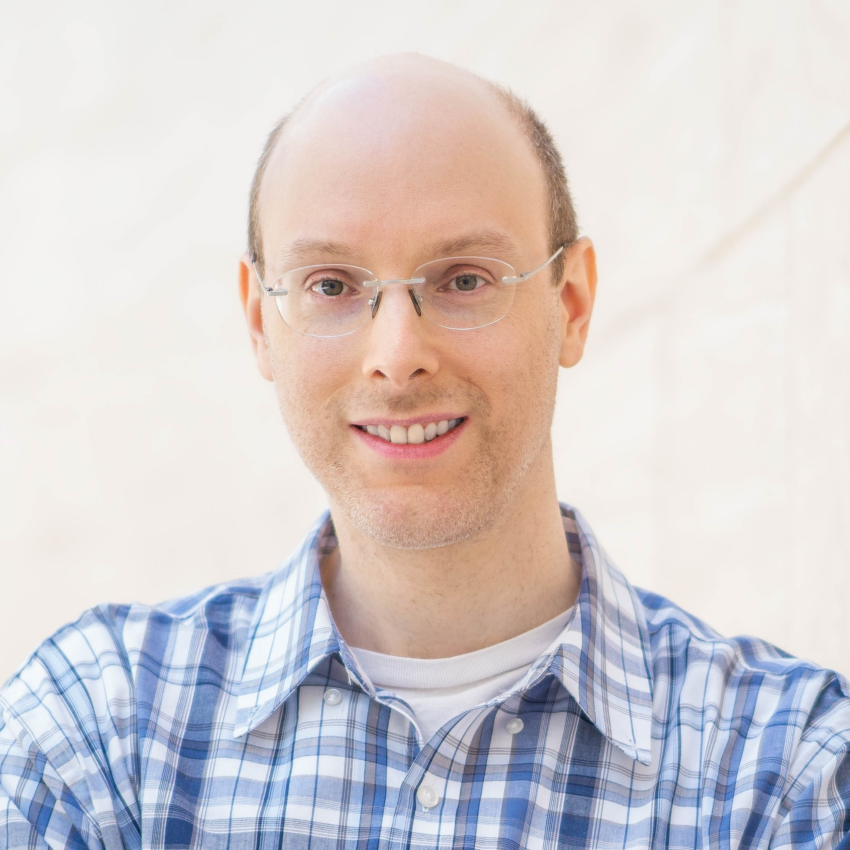Improving human health, one branch of immunology at a time
Dan Winer, MD, wants to make the world a better place, and has been systematically implementing a plan to do so for decades.
“I always like to see what is important in the future,” says Winer, an associate professor at the Buck. “Toward that end, I have focused my career on the areas of medical research that I thought were going to have the most impact on humanity for the next 10, 20 or even 100 years.”
His plan hinges on the power of the immune system and how it can be manipulated to improve human health. The evidence that Winer has collected so far includes the immune system’s interactions with: metabolism, the gut, internal mechanical forces and the microgravity environment experienced during space travel.
Winer’s passion for looking to the future may well have stemmed from the TV shows and movies of his childhood. He and his twin brother, Shawn, were fascinated with science fiction. “Watching Star Wars and superhero shows with my brother really captured our imagination about what is possible,” says Winer, especially inspiring pursuit in science. Their interests grew into long-standing research collaboration.
Graduating high school in 1994, Winer and his brother attended the University of Toronto, majoring in a fairly new Immunology program; they already appreciated the impact that the immune system has in nearly every disease process. They both ended up in medical school (Winer attending the University of Ottawa in 1998, and his brother earning a PhD first before returning to medical school). Winer chose pathology as his specialization, because it required him to “be able to diagnose pretty much any disease that is out there,” he says, which gave him a broad basic and clinical knowledge that he didn’t feel he could get in any other specialty.
As a clinician, Winer was determined to remain engaged in research. “When you practice medicine, you can help one person at a time and can make a huge difference in some families’ lives, but with research, a discovery can be applicable to thousands or millions of people,” he says. “I hoped that by doing both clinical and research, I would help humanity as much as I could in both regards.”
Winer’s research career has been a whirlwind of carving out new niches in the field of immunology.
Taking a break from his clinical duties in 2007, he went to the Stanford Blood Center, arriving with the “crazy” idea he had been concocting with his brother to explore how the T- and B- cells of the adaptive immune system contribute to chronic diseases of aging that had little to no previous emphasis on the adaptive immune system. Winer and colleagues identified that T- and B-cells produce antigen specific signatures in such disease, and infiltrate fat where they cause inflammation and affect blood sugar regulation, a finding that was named by the journal Cell Metabolism in 2015 as part of one of the top 10 breakthroughs of the prior decade in metabolism research.
Back in Toronto, Winer started his own lab, studying basic immunology and its interactions with obesity and diabetes. During this time, he:
- helped promote the emerging field of “immunometabolism,” which explores the two-way street of how the immune system controls metabolism, but also metabolism inside immune cells control their function.
- introduced an idea that the immune system in the gut can contribute to chronic systemic diseases of aging, including insulin resistance.
- discovered that mechanical forces (stiffness) that can tune immune cell functions through metabolism and other means; this was the basis of the second new field of biology that Winer has helped promote, dubbed “mechanoimmunology.”
As Winer’s interest in mechanoimmunology and immumometabolism was growing, he realized that he wanted to pursue research full time. “The Buck caught my attention because, along with space medicine, aging research was one of the two areas I think is going to have the most impact on humanity going forward,” he says.
When he arrived at the Buck in 2019, one of the first things he bought for his laboratory was a simulated microgravity machine that keeps cells in free-fall so he could start doing space science for real. In 2022, he co-founded a company, Cosmica Biosciences, with fellow Buck Associate Professor David Furman, PhD, and Cornell Professor Chris Mason, PhD, to understand the biological changes that happen during space flight and microgravity at the intersection of aging, and how they might be manipulated. Winer’s hope is that his current research into the effects of microgravity on immune cells will help excite another branch of immunology, “astroimmunology”, which he thinks will become increasingly prominent in the coming decades.
In addition to his fascination with research about how microgravity environments affect physiology, Winer continues to explore how immune system interactions in the intestines affect the chronic diseases of aging, specifically looking at how the metabolites made by bacteria shape immune cell function. Toward that end, he has co-founded another company, Propion Inc. to identify and produce optimal nutritional supplements to support bacteria in producing healthy metabolites.
“Basically, I want to continue advancing the understanding of how the immune system controls features across many diseases of aging,” he says.


